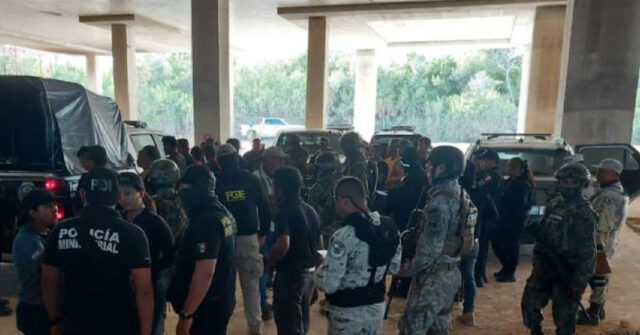Authorities in Mexico are currently investigating the targeted killing of a Canadian man, referred to by local officials as Mathew “N,” in Playa Del Carmen, a popular tourist destination in Quintana Roo. The incident occurred outside a busy shopping plaza when two gunmen on a motorcycle approached a black late model Jeep Grand Cherokee containing only the victim. They opened fire, resulting in Mathew’s immediate death. This murder is significant not only for its violent nature but also because it underscores the growing security concerns in an area that was once considered comparatively safe for locals and tourists alike.
Witnesses reported seeing the gunmen execute a swift getaway following the shooting, which raises questions about the capacity of local law enforcement to effectively manage such violent incidents. Authorities have not yet identified the attackers but believe the murder was a calculated strike likely connected to organized crime rather than a random act of violence. This aligns with broader trends within the region, as the Mexican police have been grappling with rising crime rates and the increasing influence of cartel activity, particularly concerning drug, human, and sex trafficking operations.
Playa Del Carmen, along with Cancun and Tulum, has experienced a worrying uptick in violence in recent years. Formerly seen as idyllic vacation spots, these areas are now often overshadowed by reports of cartel conflicts over control of lucrative criminal enterprises. The targeted assassination of Mathew “N” reinforces this disturbing trend, reflecting not only the perilous conditions local residents face but also the potential risk for tourists. Many of these incidents represent ongoing battles between rival crime factions eager to solidify their authority over illegal operations.
The Mexican government’s historical reluctance to adequately confront the systemic issues plaguing its security landscape is evident in the Cancun area. Alongside the troubling wave of targeted killings, citizens and visitors have faced numerous cases of abduction, violent crime, and gang-related shootouts. The implications of this deteriorating security environment extend beyond mere statistics; they threaten the economic foundation built on tourism that local businesses have relied upon for stability and growth.
As the investigation into Mathew’s murder unfolds, the incident serves as a critical reminder of the ongoing issues in Mexico’s struggle with organized crime and violence. For many, the stark reality is difficult to reconcile with the country’s rich cultural offerings and natural beauty. Efforts to improve safety and restore public trust in law enforcement must be prioritized, as the ramifications of cartel activity and the rising tide of violent crime severely hinder local communities and tourism in the region.
The roles of prominent journalists covering these issues, such as Ildefonso Ortiz and Brandon Darby from Breitbart Texas, are also vital in informing the public and holding authorities accountable. Their ongoing commitment to covering cartel-related violence provides essential visibility into these grim realities, underscoring the importance of continued dialogue and examination of the complexities surrounding systemic violence in Mexico. Moving forward, it will be imperative for both local and international stakeholders to collaborate effectively to combat the growing threats of organized crime while ensuring the safety of the areas that attract millions of visitors each year.

